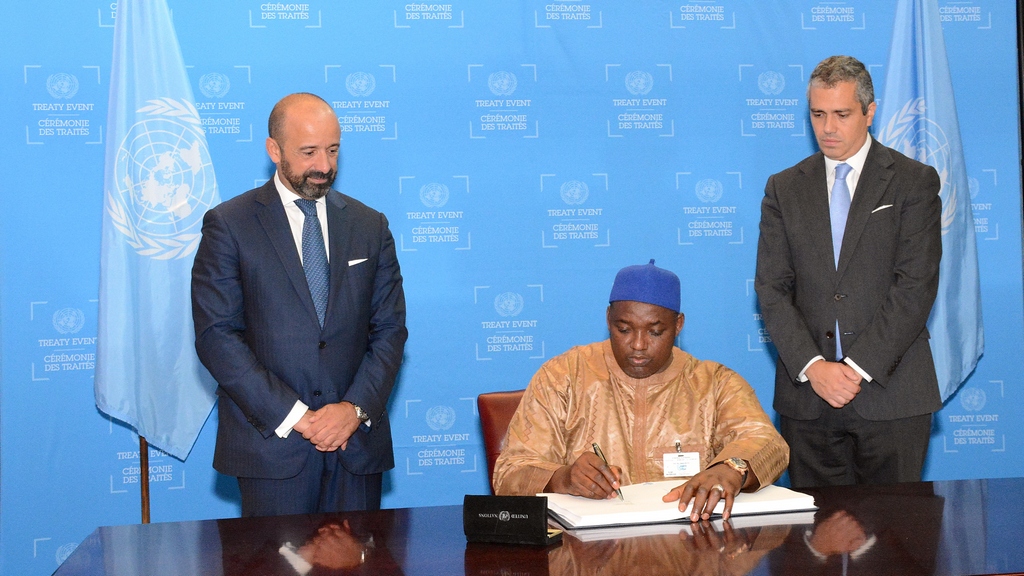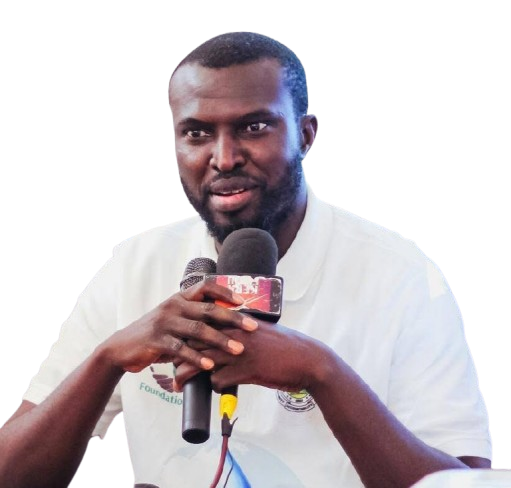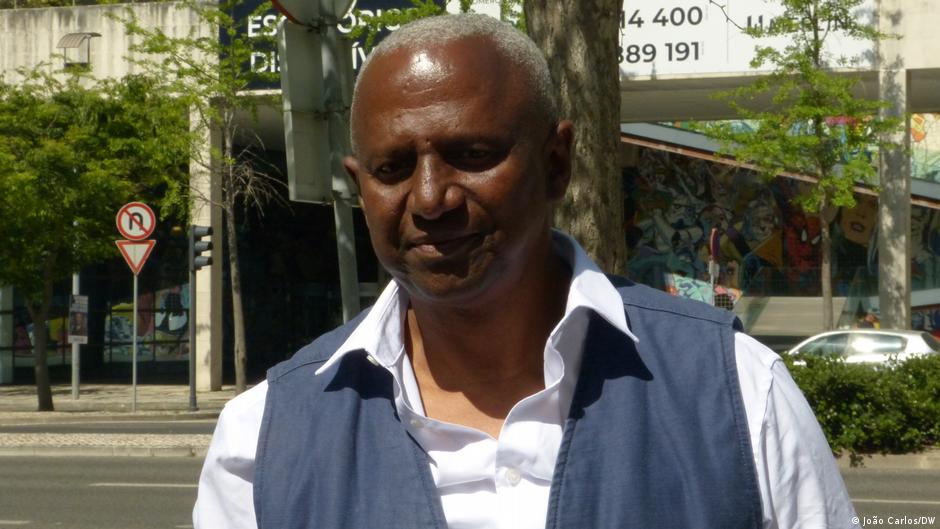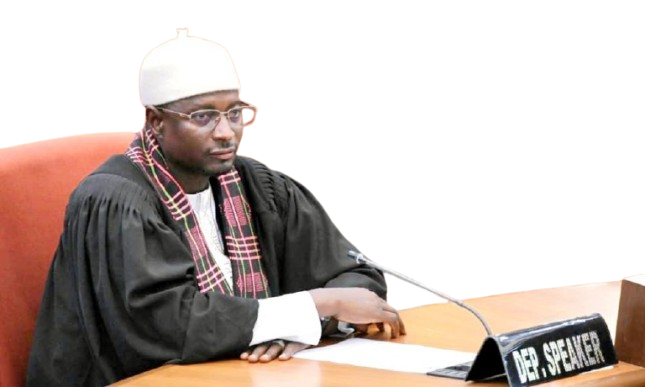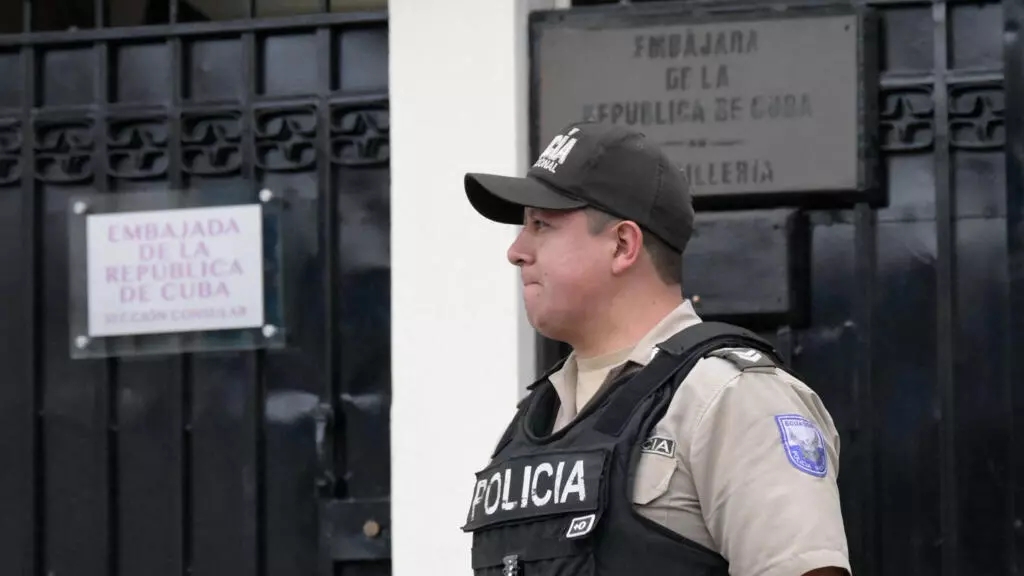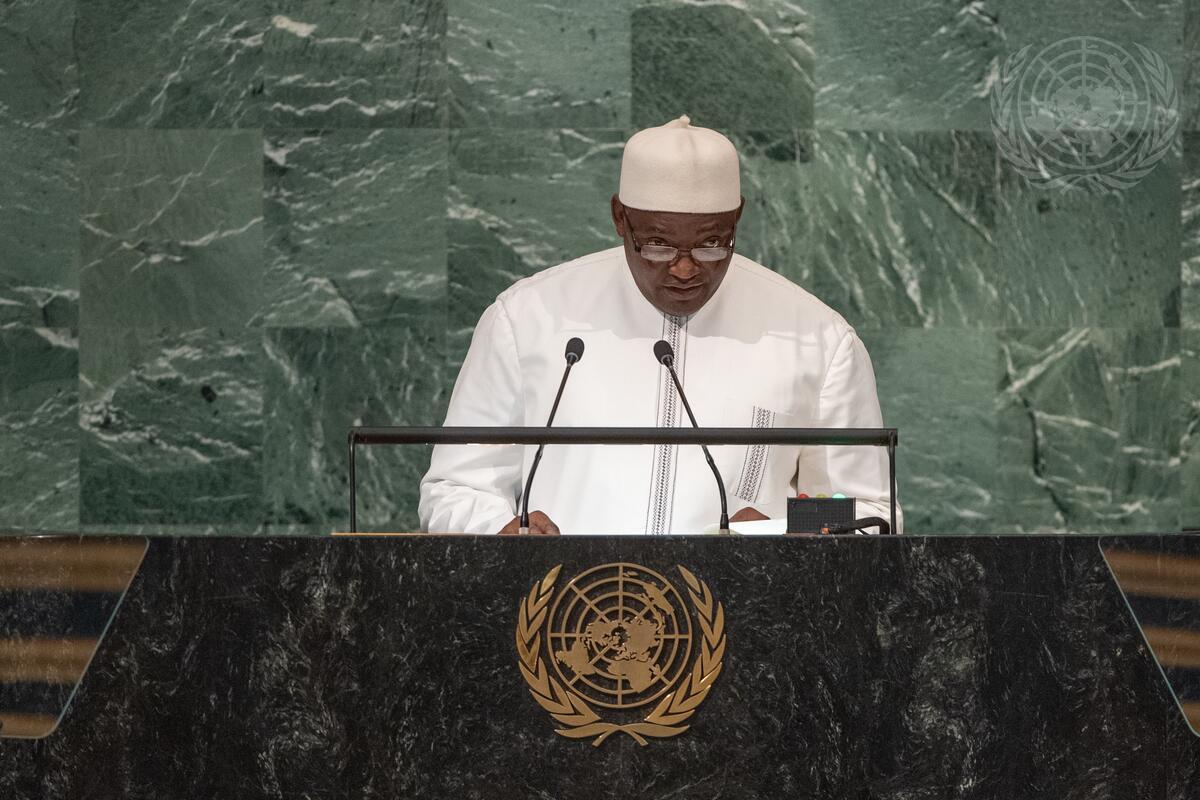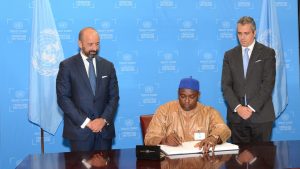Gambiaj.com – (New York, USA) – President Adama Barrow of The Gambia delivered a powerful address at the 79th Session of the United Nations General Assembly (UNGA), touching on pressing global issues and reaffirming his country’s commitment to multilateralism, sustainable development, and human rights. Below are five key takeaways from his speech.
Call for Multilateral Solutions to Global Challenges
President Barrow highlighted the importance of multilateralism in addressing global issues such as climate change, poverty, and conflict. He praised the United Nations’ “Summit of the Future” initiative and underscored that collective international efforts are necessary to combat these challenges. The Gambian leader urged the UN and international financial institutions to undergo reforms to create a more inclusive and just system, capable of addressing today’s crises effectively.
Commitment to Sustainable Development Goals (SDGs)
Barrow stressed The Gambia’s alignment with the UN’s Agenda 2030 for Sustainable Development, calling on wealthier nations to support least-developed countries (LDCs) like The Gambia in overcoming economic hardships. He emphasized the need for increased investment in capacity building, technology transfer, and closing the digital divide to foster long-term development and equality.
Gender Equality and Youth Empowerment
The President reaffirmed his administration’s dedication to gender equality, stating that empowering women leads to broader community development. He emphasized the importance of protecting women’s rights and expanding their role in socio-economic progress. Additionally, he discussed initiatives aimed at youth empowerment, focusing on employment, education, and health to tackle pressing global challenges such as climate change and inequality.
Advocacy for Global Peace and Human Rights
President Barrow reiterated The Gambia’s commitment to human rights and democratic principles, mentioning the country’s recent achievements in freedom of expression and political reform. He also called for stronger international efforts to resolve ongoing conflicts in regions such as Palestine, Sudan, and Ukraine. Barrow, as chair of the Organisation of Islamic Cooperation (OIC), reaffirmed his commitment to promoting peace in the Middle East, particularly advocating for a two-state solution between Israel and Palestine.
Migration and Economic Sanctions
Barrow addressed the complex issue of migration, calling for the decriminalization of migration and urging international stakeholders to respect migrants’ rights. He noted that dictatorship, conflict, poverty, and economic sanctions are key factors driving forced migration. Specifically, Barrow criticized the U.S. embargo on Cuba, calling for its removal to promote better relations and cooperation between nations.
In his concluding remarks, President Barrow urged world leaders to prioritize diplomacy and collective action in addressing global challenges, emphasizing that concrete steps, including cooperation with the private sector and international organizations, can drive transformative change for a more peaceful and sustainable world.



